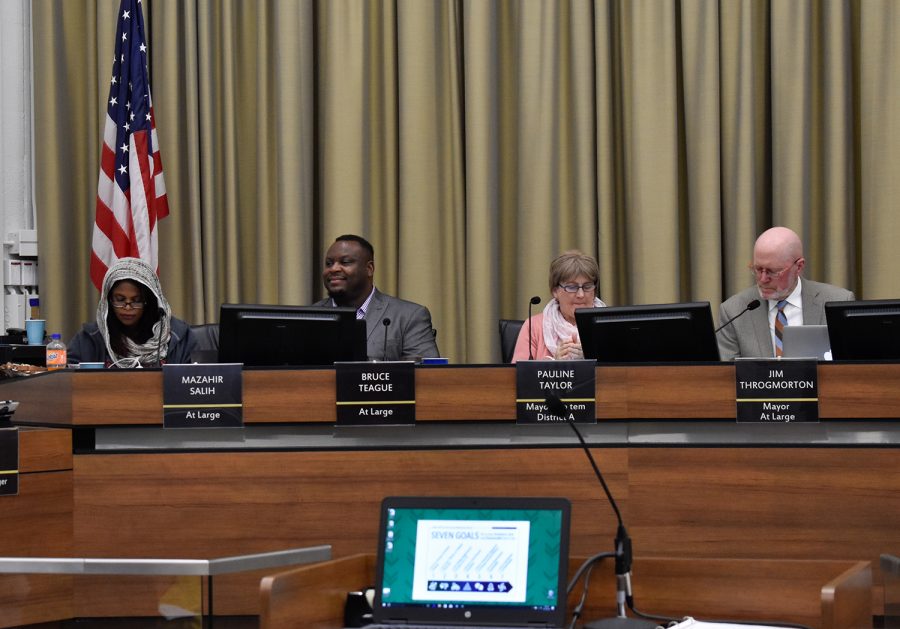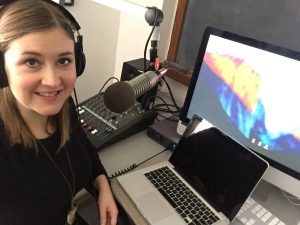New ordinance targets massage businesses, human trafficking
Working together with Neighborhood Development Services, the ICPD will now enforce an ordinance that allows the investigation of licenses of massage therapists in Iowa City.
The Iowa City Council meets for a formal meeting on Tuesday, October 16, 2018.
March 13, 2019
A new ordinance allowing the investigation of massage businesses in the area has recently been enforced by the Iowa City police to crack down on human trafficking.
Area police began enforcing an added Chapter 3 to Title 5 of the City Code, referred to as the “Massage Business Ordinance,” on Feb. 28. The ordinance requires businesses, or therapists in a business, to provide their state license number on a form sent out by the city, which is then verified by Neighborhood Development Services.
Iowa City police Sgt. Jorey Bailey said the ordinance is one way law enforcement works to prevent illegal businesses disguised as ordinary massage parlors.
The state law in Iowa changed in July 2017 to allow local governments to create ordinances to regulate massage businesses, he said.
“In that change, we saw a lot of communities around us enacting ordinances that regulated massage business, and we decided to follow suit,” Bailey said.
Because surrounding areas such as Coralville and Cedar Rapids have enacted their own massage-parlor ordinances, he said, it was important for Iowa City police to do so as well to eliminate the potential for illegal businesses to move into Iowa City.
The city started looking into creating an ordinance last year, Bailey said, and came up with two possible options. One option, used in Urbandale, acknowledges the existing state licenses of massage therapists. The other, which is used in Johnston, requires massage therapists to acquire additional licenses through the city alongside their state licenses.
“We decided to go the Urbandale route, choosing to identify that massage therapists go through a licensing and education process with the state,” Bailey said. “They jump through those hoops, they financially are burdened by that process. We didn’t want to additionally burden them by having to get a local license as well.”
RELATED: Closing the gap between police and IC Community Police Review Board
The ordinance works in two parts. The first allows Neighborhood Development Services to ensure that all therapists working at a massage parlor are licensed by the state. The second part, should there be reasonable cause for suspicion, allows the police to investigate the business for victims of human trafficking being forced to work.
Bailey said the type of ordinance the city now follows allows for victims to be helped rather than punished for their exploitation.
“Both are meant to affect the brick-and-mortar structure, not necessarily the person practicing within that business, because we want to be very cognizant of the victims of human trafficking that could be forced to practice,” Bailey said.
The ordinance has allowed Neighborhood Development Services to reach out to area massage businesses and receive state license numbers, Assistant City Attorney Sue Dulek said.
“City staff was in contact with four businesses, and all are in compliance with the city ordinance,” Dulek said in an email to The Daily Iowan.
Marnie Teagle, a building specialist in Neighborhood Development Services, said the city visited with massage businesses that were mentioned on a website that exclusively advertises for businesses that provide illicit massage services.
“We visited with several massage businesses that were identified through the website …” she said. “We simply asked them to complete a registration application, and all of the businesses complied.”
If a business is not in compliance, Bailey said, Neighborhood Development Services has the power to shut the practice down or refer suspected criminal behavior to the police.






